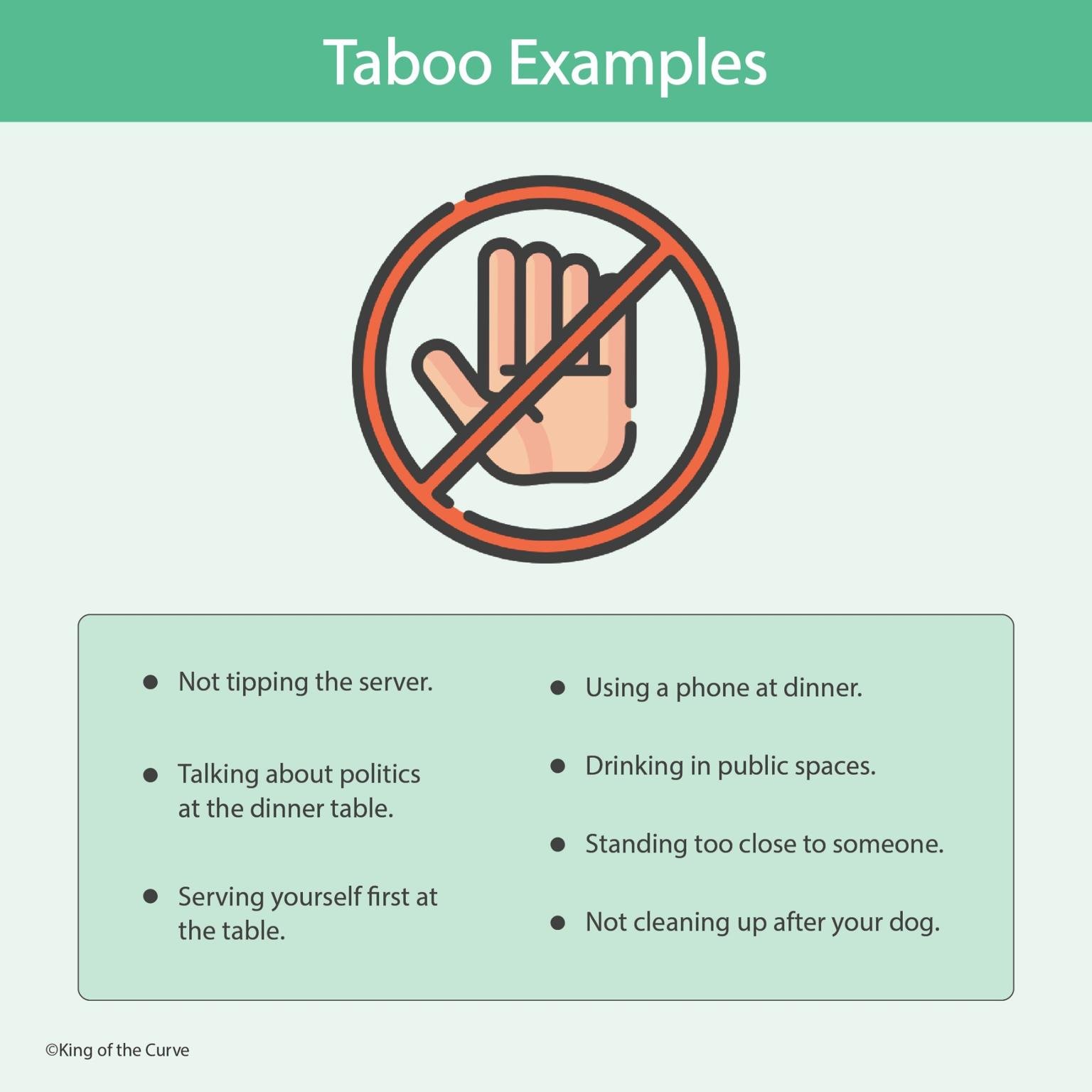🚫 Understanding Social Taboos: Everyday Norms That Shape Our Behavior
In sociology and psychology, a taboo is a powerful social norm that marks certain behaviors as forbidden or highly discouraged within a cultural or social group. These aren't just suggestions—they often carry strong emotional reactions, such as disgust, shame, or social punishment when violated.
📊 Taboo Examples
This image highlights some common social taboos in Western society:
❌ Not tipping the server
❌ Talking politics at the dinner table
❌ Serving yourself first
❌ Using your phone at dinner
❌ Drinking in public spaces
❌ Standing too close to others (invading personal space)
❌ Not cleaning up after your dog
These behaviors are not illegal, but they're socially regulated by norms—specifically folkways and mores. When violated, they may provoke embarrassment, reprimand, or even ostracism.
🧠 Taboo Topics on the MCAT & NCLEX
MCAT Application
On the MCAT, taboo-related content appears under Psychology and Sociology. You might see passages describing cultures or social behaviors, with questions testing:
The difference between folkways, mores, laws, and taboos
How norms influence behavior in different social groups
The consequences of deviance
💡 Tip: If a passage describes a behavior that leads to intense social or emotional reaction (but not necessarily legal punishment), it's likely a taboo, not just a folkway or more.
NCLEX Application
For nursing students, understanding taboos is crucial when providing culturally competent care. Taboos can affect:
Dietary restrictions
Physical touch preferences
Communication patterns
Nurses are expected to respect these boundaries to provide ethical, sensitive care.
📚 Why Taboos Matter in Health Professions
As future healthcare providers, recognizing taboos helps you:
Communicate better with diverse patients
Avoid unintentional offense
Build trust and rapport
Deliver equitable care
Whether you’re interpreting MCAT psych passages or interacting with patients on clinical rounds, being aware of what’s socially “off-limits” sharpens both your academic and professional skillset.
🔁 Related Resources from King of the Curve
📣 Final Takeaway
Taboos are more than quirky customs—they're powerful social tools that enforce group norms and regulate behavior. Recognizing them isn't just sociologically interesting—it’s a key part of exam success and clinical empathy.
Frequently Asked Questions (FAQs)
-
Aim for 4-6 focused hours, ensuring you incorporate breaks to avoid burnout.
-
Practice mindfulness techniques, take practice exams under realistic conditions, and maintain a balanced lifestyle.
-
Set short-term goals, seek support from mentors, and reward yourself for small achievements.
-
Regular exercise improves focus, reduces stress, and enhances overall mental clarity.
-
KOTC offers personalized learning tools, gamification features, and adaptive question banks to help students stay on track without burnout.


